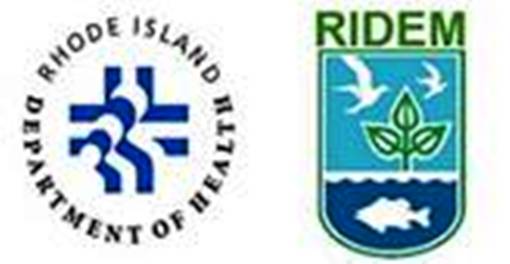
RIDOH and DEM Recommend Avoiding Contact with Almy Pond
The Rhode Island Department of Health (RIDOH) and the Rhode Island Department of Environmental Management (DEM) are advising people to avoid contact with Almy Pond in Newport due to a blue-green algae (or cyanobacteria) bloom in the pond. Blue-green algae can produce toxins that can harm humans and animals.

People should also be careful not to ingest water or eat fish from the pond. All recreation, including fishing, boating, and kayaking, should be avoided. Pets can also be affected by exposure to the algal toxins, so owners should not allow pets to drink or swim in the water. The advisory will remain in effect until further notice.
Skin contact with water containing blue-green algae commonly causes irritation of the skin, nose, eyes, and/or throat. Common health effects associated with ingesting water containing algal toxins include stomach ache, diarrhea, vomiting, and nausea. Rarer health effects include dizziness, headache, fever, liver damage, and nervous system damage. Young children and pets are at a particular risk for health effects associated with algal toxins. People who have had contact with Almy Pond and experience those symptoms should contact their healthcare provider.
If you come into contact with the water, rinse your skin with clean water as soon as possible and, when you get home, take a shower and wash your clothes. Similarly, if your pet comes into contact with the water, immediately wash your pet with clean water. Do not let the animal lick algae off its fur. Call a veterinarian if your animal shows any symptoms of blue-green algae poisoning, including loss of energy, loss of appetite, vomiting, diarrhea, or any unexplained sickness that occurs within a day or so after being in contact with water. People are cautioned that toxins may persist in the water after the blue-green algae bloom is no longer visible.
It is possible that blue-green algae blooms may be affecting other waterbodies in Rhode Island. People are advised to avoid contact with waterbodies that exhibit bright green coloration in the water or at the water surface and/or dense floating algal mats that form on the water’s surface. The water may look like green paint, thick pea soup, or green cottage cheese. To report suspected blue-green algae blooms, contact DEM’s Office of Water Resources at 401-222-4700 or DEM.OWRCyano@dem.ri.gov and if possible, send a photograph of the reported algae bloom.

